
The Warrnambool Breastfeeding Centre offers a unique model of breastfeeding support to families in the regional area of Warrnambool, southwest Victoria, Australia. Unlike typical breastfeeding services provided through hospitals and child and family health centres, the WBC is an independent, not-for-profit registered charity offering drop-in style breastfeeding support. Parents can access free support from an IBCLC, use a range of parenting facilities and attend workshops including first aid classes, breastfeeding preparation classes and sing-along sessions. The centre aims to promote and normalise breastfeeding by offering accessible support to families in the Warrnambool community. Currently, the WBC is the only breastfeeding community support service of this type operating in Australia and to date, has yet to be formally evaluated. Given that breastfeeding is a public health priority, this model of breastfeeding support holds the potential to improve the care of breastfeeding families. This research aimed to qualitatively explore the experiences of service users of the WBC and understand the role the service plays in supporting parents along their breastfeeding journey. Sixteen parents who utilised the centre’s services in the past five years were interviewed using a semi-structured interview guide. This presentation will share their experiences of using the services provided by the Warrnambool Breastfeeding Centre. Results will offer insight into considerations for service providers in relation to the provision of community-based breastfeeding support services, as well as early parenting services more broadly.
0.5 L Cerp (V, VII)
V Psychology, Sociology & Anthropology
VII Clinical Skills
Learn positioning strategies that make early breastfeeding easier for families and helpers, the effects of skin-to-skin contact and separation on infant stability, what biology tells us about normal early feeding patterns, and ways institutions and individuals can more effectively support breastfeeding parents for better outcomes.
1 L Cerp (I, II, VI, VII)
I Development and Nutrition
II Physiology & Endocrinology
VI Techniques
VII Clinical Skills
Mastitis is an inflammation of the breast and although a common problem in breastfeeding women it remains poorly understood. Since beginning her PhD on mastitis in 2000, she has conducted research using audits, surveys, microbiology, interviews and exploratory work on milk analysis. In this presentation, I will describe the current understanding of lactational mastitis, share recent research and describe the evidence for management strategies.
1 L Cerp (I, II, III, IV, VI, VII)
I Development and Nutrition
II Physiology & Endocrinology
III Pathology
IV Pharmacology & Toxicology
VI Techniques
VII Clinical Skills
In our increasingly medicalised and time-constrained maternity system, birth trauma and disappointment have also risen. Women are not prepared for this system, and care providers are not prepared for women! The need for a more effective birth preparation approach is apparent. The Birth Map was developed as a consumer-driven, woman-centred, structured approach to birth preparation. In book form, it overviews maternity services, encourages communication through question prompts and suggests resources and support opportunities. Using Realist Evaluation, we sought to determine if this book could bridge the communication gap, helping women prepare for their births and make confident decisions about their care. Women across different models of care used the book to prepare for births, and it was clear that this book did help. The women reported it helped to know what they did now know, and in identifying this, they could use the recommended resources and question prompts to find out more. They could build their support team, and they did indeed make confident decisions. However, there were barriers. In the absence of relationship-based care, women’s attempts to communicate were thwarted by dismissive care providers in time-limited appointments. There were challenges when decisions did not align with care provider preferences. The book built half the bridge. The other half of the bridge needs care providers to become versed in birth mapping, compassionate care and Supported Maternal Decision Making. Building the bridge from both sides means we can improve women’s experiences, facilitate communication, and aid decision-making, but also equip care providers to understand women’s autonomy, support their decision making and show compassion.
1 R Cerp (V, VII)
V Psychology, Sociology & Anthropology
VII Clinical Skills
This presentation will address the clinical challenges of slow weight gain in breastfed infants, a concern that can impact infant health, maternal physical and mental health and maternal breastfeeding confidence. We will explore the various causes, including latch issues, insufficient milk supply, and underlying medical conditions while highlighting effective diagnostic approaches. Emphasis will be placed on management strategies, such as breastfeeding support, nutritional supplementation, and multidisciplinary care. Through case studies and evidence-based practices, the presentation aims to equip clinicians with the tools to identify and manage slow weight gain, promoting optimal outcomes for both mother and baby.
0.75 L Cerp (I, II, III, IV, V, VI, VII)
I Development and Nutrition
II Physiology & Endocrinology
III Pathology
IV Pharmacology & Toxicology
V Psychology, Sociology & Anthropology
VI Techniques
VII Clinical Skills
Birthing on Country is a model of care that is proving to create the best start to life First Nations people. This presentation will highlight the importance of First Nations wrap around care that creates safe places for First Nations women to receive care early to reduce poor outcomes in child and maternal health.
0.75 R Cerp (V, VII)
V Psychology, Sociology & Anthropology
VII Clinical Skills
In 2024, Alice induced lactation with the assistance of Dr Lisa Amir, using the method pioneered by Lenore Goldfarb and Jack Newman. The goal was to allow her to have the experience of breastfeeding her newborn daughter, while also taking some of the pressure off my wife, who was to be the main source of food. This presentation will talk about the unexpected challenges and rewards of inducing lactation.
0.75 L Cerp (I, II, IV, V, VI, VII)
I Development and Nutrition
II Physiology & Endocrinology
IV Pharmacology & Toxicology
V Psychology, Sociology & Anthropology
VI Techniques
VII Clinical Skills
The accredited course HLTAID009 Provide Cardiopulmonary Resuscitation provides participants with the knowledge and skills to provide CPR in line with the Australian Resuscitation Council (ARC) guidelines. Suitable for people wishing to renew their annual certification and for people who have never done a CPR course before.
This workshop covers:
This meets the requirement for IBCLC Basic Life Support - 3 CERPs
This workshop is limited to 20 participants. Click the link below to book:
https://www.breastfeedingconferences.com.au/about/HLTAID009-Provide-Cardiopulmonary-Resuscitation
This Australia wide certification is valid for 12 months and provided by Summit First Aid.
Human milk has many advantages for preterm and sick infants even more than for others. Providing mother’s own milk for an infant in a neonatal unit is a challenging task that many mothers successfully undertake. These mothers however need to be supported to achieve this goal both in the hospital and at home. At a time when the infant’s medical status is causing worry for the parents, an entire team effort is necessary to support mothers to provide their milk for the infants. Every obstetric/neonatal unit can provide this support with adequate awareness. The baby-friendly hospital initiative has been taken a step further as the neo-BFHI which provides guidance on how to promote human milk feeding in neonatal units. Some countries with higher breastfeeding rates have these mechanisms in place.
0.75 L Cerp (I, II, III, V, VI, VII)
I Development and Nutrition
II Physiology & Endocrinology
III Pathology
V Psychology, Sociology & Anthropology
VI Techniques
VII Clinical Skills
Marketing is pervasive on commercial foods for infants and young children, with colourful imagery, popular children’s characters, and extensive health and nutrition claims. Food marketing influences children’s food preferences, and influences the choices that parents make when choosing food for their children. Understanding the ways in which parents are targeted by food marketing practices is important to ensure design and implementation of comprehensive policies that protect children from related dietary harms and to support parents and caregivers when making food choices. This presentation will highlight new research on the nature and impact of marketing of foods for infants and young children, and discuss how to navigate this marketing when choosing foods for young children.
0.75 E Cerp (I, V, VII)
I Development and Nutrition
V Psychology, Sociology & Anthropology
VII Clinical Skills
Ensuring optimal maternal mental health during pregnancy and postpartum is important for many reasons. Sometimes untreated conditions like antenatal/postnatal depression, anxiety, personality disorders, psychosis can affect the developmental trajectory of the baby and disrupt maternal-child dyadic attachment, notwithstanding the inherent distress of symptoms for the mother. In this presentation, Leo will explore his own learning in setting up a perinatal psychiatry clinic in a regional service. It will touch on basic revision of specific conditions and how they can manifest in pregnancy, as well as treatment options including the safe use of psychotropics in pregnancy and breastfeeding.
1 L Cerp (IV, V, VII)
IV Pharmacology & Toxicology
V Psychology, Sociology & Anthropology
VII Clinical Skills
Summarizes strategies that can be used with term and preterm babies transitioning from bottles, nipple shields, and other feeding methods to full breastfeeding using insights from the research and clinical practice. Includes a four-part framework for determining possible factors contributing to distress at the breast, along with strategies for targeting interventions to the cause of the feeding problem.
1 L Cerp (I, III, VI, VII)
I Development and Nutrition
III Pathology
VI Techniques
VII Clinical Skills
This presentation will explore the rising rates of frenotomy, a procedure to release tongue-tie in infants. Over the past 15yrs, we have seen a significant increase in Medicare billing for tongue tie releases, often performed by practitioners with no training in breastfeeding medicine. We will examine recent research by Dr Nicki Mills, whose work critically evaluates the definition and diagnosis of lingual frenulae, providing valuable insights into clinical decision-making. The presentation will focus on how to integrate this research into practice, including patient assessment, collaboration with lactation consultants, and post-procedure care, ensuring evidence-based, patient-centered outcomes in clinical settings.
0.75 L Cerp (I, III, IV, V, VII)
I Development and Nutrition
III Pathology
IV Pharmacology & Toxicology
V Psychology, Sociology & Anthropology
VII Clinical Skills
In this presentation, Dr Amir will present case studies to demonstrate how taking a careful history helps reveal the causes of breastfeeding problems. Considering the range of biopsychosocial factors involved can assist in finding solutions.
After this presentation participants will be able to:
0.75 L Cerp (I, II, III, IV, V, VI, VII)
I Development and Nutrition
II Physiology & Endocrinology
III Pathology
IV Pharmacology & Toxicology
V Psychology, Sociology & Anthropology
VI Techniques
VII Clinical Skills
Understand consumer perspective of consent, risk and choice. Understand the concept of birth cartography and its key elements and benefits.
Understand decision making from a consumer perspective, the concept of the fast birth pathway, and how it benefits birth preparation. Apply this to your practice. Understand the partner perspective and analyse the impact this has on outcomes. Evaluate decision making, and begin to create a birth map.
Understand the pathways from a consumer perspective, and apply this by analysing a holistic appreciation of individual care and evaluating circumstances to support consumers in creating an individual birth map for use during labour. Create communication tools to enhance practice, creating effective and efficient appointments. Understand the varied nature of the newborn phase and matrescence and how to apply education antenatally, create new methods and networks particular to own practice to enhance education and support within own community.
Learn how to play The Game of Birth and create a landscape overview particular to your practice within the context of individualised birth. We will Consolidate all the sessions, and take the opportunity to clarify or grow concepts

Nancy Mohrbacher
Nancy began helping nursing families in 1982 as a volunteer peer supporter. She became an IBCLC in 1991 and spent 10 years growing a large private lactation practice in the Chicago area, where she worked one-on-one with thousands of families. Nancy is the author or co-author of three current books for nursing parents and two for lactation specialists, including her 2020 textbook, Breastfeeding Answers (2nd ed). Her Breastfeeding Solutions app is used worldwide, and her YouTube channel has millions of views. She currently creates innovative lactation education for aspiring and recertifying lactation consultants online at LactaLearning.com and speaks at events internationally. Nancy was in the first group of 16 to be honoured for their contributions to breastfeeding with the designation FILCA, Fellow of the International Lactation Consultant Association.

Lisa Amir
Professor Lisa Amir is a general practitioner and lactation consultant. She works in breastfeeding medicine at The Royal Women's Hospital in Melbourne. She is a Principal Research Fellow at the Judith Lumley Centre, La Trobe University, Australia, and the Editor-in-Chief of the International Breastfeeding Journal.

Catherine Bell
In becoming a mother, Catherine was frustrated with the 'need to know' nature of maternity, so trained as a birth doula and breastfeeding counsellor and educator to fill the knowledge gap and support other women. Combined with her Master's in Science Communication, this led to the development of Birth Cartography and the invention of The Game of Birth. Her book The Birth Map was evaluated in her PhD study into communication and decision-making in maternity services.

Norma Barrett
Norma Barrett lectures on public health and health promotion subjects at Deakin University’s Warrnambool campus and online. Norma is an early career researcher. Her work to date has focussed on i) experiences of the transition to parenthood in Australia and ii) parent experiences of the services they utilise during the transition to parenthood and in the early years of parenting.
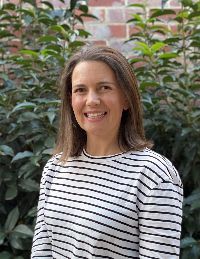
Alexandra Chung
Dr Alex Chung is an accredited practising dietitian and a senior lecturer with the Dpt of Nutrition, Dietetics and Food, Monash University. She currently holds a VicHealth Postdoctoral Research Fellowship where she leads a program of research to reduce the impact of marketing of commercial foods for infants and young children. Through her research, Alex generates evidence to support and promote healthy diets for infants and young children throughout Australia.
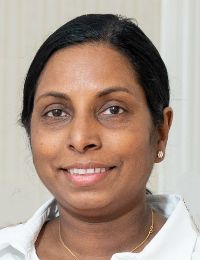
Ranmali Rodrigo
Ranmali is a neonatologist and lactation consultant. She had her medical training in Sri Lanka, UK and Australia and worked as a university lecturer, lactation management trainer and consultant neonatologist in Sri Lanka prior to moving to Australia. Ranmali completed her PhD on ‘Storage and transport of mother’s milk in neonatal intensive units’, from La Trobe University, Melbourne in 2023 and is currently a consultant neonatologist and head of the Mercy Health Breast Milk Bank at Mercy Hospital for Women in Heidelberg, Victoria. She has been an IBCLC since 2013. Her research interests include human milk feeding and preterm nutrition. She has several publications in peer-reviewed journals.
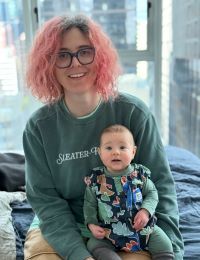
Alice Clarke
Alice Clarke is an award-winning freelance journalist and has a unique relationship with breastfeeding. In 1988 she became Australia’s first and the world’s second IVF surrogate birth and her mother, Maggie Kirkman, made headlines when she induced lactation to feed her. Thirty six years later, Alice induced lactation to feed her own daughter.
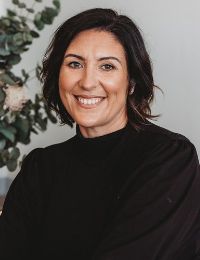
Amber Hart
Dr Amber Hart is a GP, IBCLC and founding director of Maternal and Infant Wellbeing Melbourne. Dr Hart obtained her medical degree at The University of Melbourne in 2005. Over the following years, she developed a keen interest in Women’s Health. She completed her Diploma of the Royal Australian and New Zealand College of Obstetrics and Gynaecology, and subsequently her Fellowship of General Practice. These qualifications allow her to support women through pregnancy, birth and the post-partum period in a holistic way, while at the same time nurturing her own family. Amber is passionate about maternal and infant wellbeing and noticed a gap in breastfeeding education and support, both professionally and personally which led to her becoming qualified as an International Board Certified Lactation Consultant (IBCLC) in 2014. In order to fully support families through their early years she has also undertaken further training in infant sleep and settling and obtained accreditation as a Neuro-protective Developmental Care Practitioner through The Possums Clinic. In 2023 Dr Hart founded Maternal and Infant Wellbeing Melbourne, a multidisciplinary women’s and children’s clinic, in order to provide consistent, co-ordinated, evidence-based care to families in the perinatal period and beyond. Her clinic is home to the first of its kind Breastfeeding Day Stay Experience.
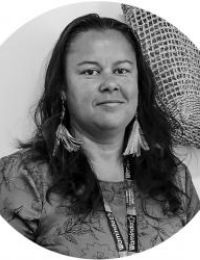
Melanie Briggs
Melanie is a trailblazer who is making a profound difference to the health of Indigenous mothers and babies in her region. A descendant of the Dharawal and Gumbaynggirr people, Melanie was the first endorsed Aboriginal midwife in NSW and is one of only two endorsed Aboriginal midwives in Australia. Melanie is a senior midwife at Waminda South Coast Aboriginal Women’s Health and Welfare Corporation and heads up the Minga Gudjaga 'Mother and Baby' Maternity Service. Recognised as a model for ‘Closing the Gap’, Waminda is Aboriginal-led and community controlled, and guided by the principles of self-determination. Melanie is the lynchpin of the maternity service, providing cultural guidance and leadership to other midwives and members of the research team.
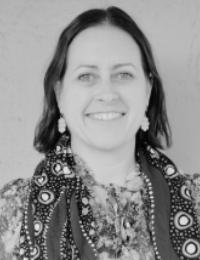
Alison Weatherstone
Alison is a contemporary dual qualified Midwife, completing a Postgrad Dip (Midwifery) at Curtin University and Master of Primary Maternity Care at Griffith University. With lived experience across W.A, VIC, QLD and Kenya, Africa, Alison is drawn to rural and remote midwifery and has a keen interest in access to safe woman and family centred maternity care, midwifery leadership, breech birth and global maternal health. Alison draws on experience working in both private and public healthcare sectors, executive level leadership and clinical research projects. An advocate of culturally safe and midwifery led continuity of carer close to home, Alison has played key roles in the implementation, review and sustainability of Midwifery Group Practices.
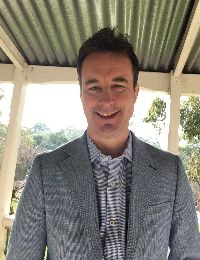
Leo Smith
Dr Leo Smith is a Warrnambool based psychiatrist, working in consultation-liaison (CL) at South West Healthcare. He has sub-specialty interest in the mental health care of the maternal-child dyad, setting up a perinatal psychiatry clinic embedded in the Women’s Health Clinic in 2021. During his registrar training, Leo completed rotations in CL at the Mercy Hospital for Women, Heidelberg and in inpatient care at Austin Health’s Mother Baby Unit (Parent Infant Program). His Masters’ thesis through the Oxford Online Programme in Sleep Medicine explored the effects of maternal psychiatric illness on infant sleep architecture, via systematic literature review. Whilst remaining a Diplomate of the Royal Australian and New Zealand College of Obstetricians and Gynaecologists, it has been a long time since Leo delivered a baby!